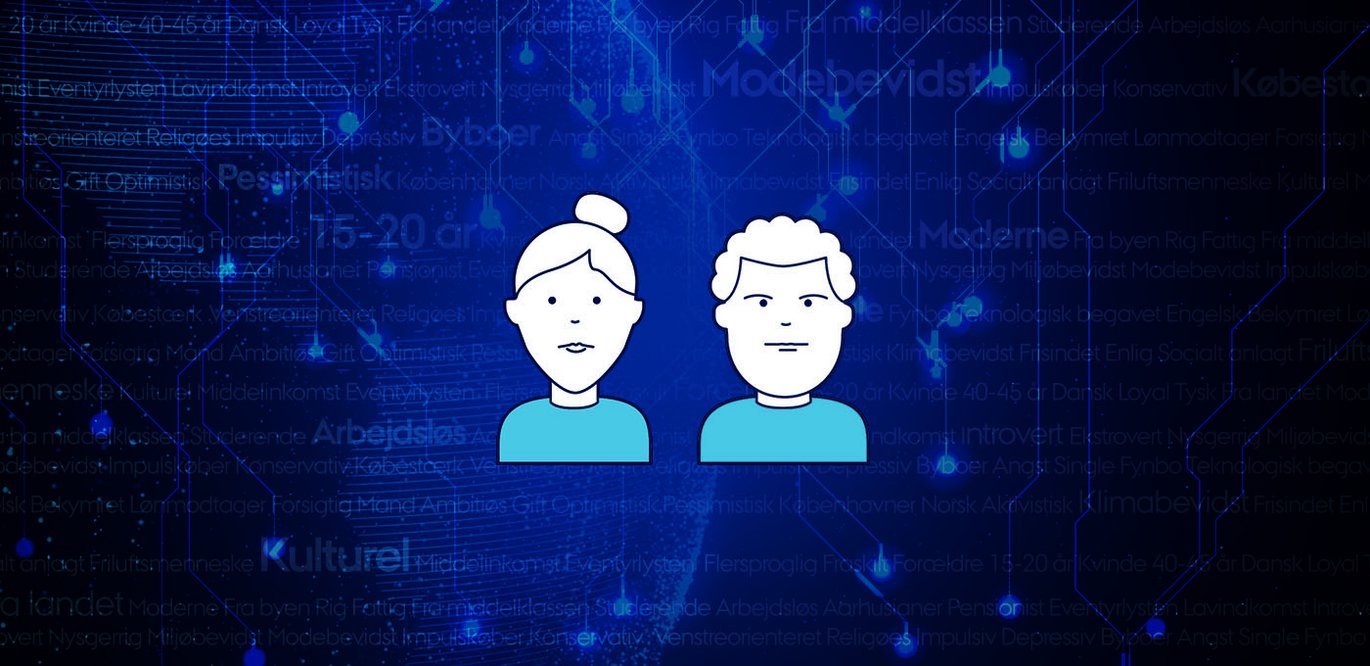Scientists surprise high school students: The internet knows who you are
Every time you click around on the internet, you leave traces. But perhaps you'll be surprised at HOW well the internet knows you. That was certainly the case for a group of high school students when they participated in a teaching program about data security developed by AU researchers. We can all learn something from the project, which is now set to be further developed.

Article by: Aarhus University and Ida Hammerich Nielson .
One day in April 2023, a group of computer science students at Favrskov Gymnasium and Aalborg Katedralskole were tasked with evaluating a website. They had done that before. But after examining the website, the students got a surprise. The task wasn't about evaluation at all but about the traces the students had left – solely by clicking around on the website.
The researchers behind the task presented the students with data about the different users in anonymized form, and to the students' great surprise, they could easily guess which students were behind the different data, such as who had clicked on which ads, and who had spent a long time on specific parts of the website. "I've left so many traces that one can easily identify me" and "The website is getting revenge," were among the comments from the high school students after the exercise.
We need to have a better understanding of data
Postdoc in computer science Line Have Musaeus, together with her colleagues, is behind the teaching program, which was developed in collaboration with computer science teachers. The website the students were supposed to investigate was developed specifically for this purpose and was about what one could do during a gap year after high school. "Our research shows that high school students become more motivated to understand the issue of data by working with their own data. The data we collected about the students can be collected by all commercial companies in principle. But if you've looked up a sports college on the internet, are you interested in being flooded with ads for Adidas shoes on other platforms, like Instagram? The way we behave in one place is used everywhere else," says Line Have Musaeus.
We all leave data behind, but it's difficult for individuals to do anything about it. Some occasionally click on something they're not interested in, or on an advertisement for a political party they don't agree with - just to blur their profile and create a more nuanced feed for themselves. This way, one can combat both commercial and political echo chambers. According to Line Have Musaeus, it's good for all of us to become more aware of the mechanisms we're subject to, but ultimately, the responsibility lies elsewhere: "If one wants to try to politically control what the big tech companies can and cannot do, we need to have a qualified discussion about what data is. Otherwise, the discussion becomes very abstract. We lack a sense of what the tech companies can actually collect, and this project can contribute to that," says Line Have Musaeus.
As visible on the internet as on the pavement
The course is initially developed as a prototype. Around 60 high school students have tested it. Now, the AU researchers are looking for Danish teachers who will help further develop the course so that it also fits into Danish and other subjects. Digital literacy is included in the curricula of high schools across subjects. Associate Professor Jens Horskjær Hvelplund from Favrskov Gymnasium has used CoTinker in his teaching of computer science and social studies: "In computer science, I used the CoTinker tool to illustrate the data collection that occurs when students navigate the internet. The students were engaged in the activity because the tool was designed as an experiment, and there was also a competitive element that motivated most to participate actively. In social studies, the activity was used in relation to a unit on physical and digital data, and the students experienced that they are just as visible on the internet as they are when they walk on the pavement," says Jens Horskjær Hvelplund. He has had a positive experience with the CoTinker tool in teaching: "CoTinker is designed so that students are actively encouraged to discuss the issues along the way, and the technical solution ensures that they also have to follow each other in the activity. Both aspects create really good conditions for them to remember the experience with CoTinker in the following teaching blocks. In this way, it can be a reference point for an entire teaching unit."
CoTinker
CoTinker is a new learning platform and teaching program that strengthens learning in data security for high school students. CoTinker was developed by researchers from the Department of Computer Science and computer science teachers from Aalborg Katedralskole and Favrskov Gymnasium in collaboration with the Center for Computational Thinking & Design, Videnscenter for Digital Teknologiforståelse, and CAVI, with support from It-vest - collaborating universities. The Novo Nordisk Foundation has granted money to further develop the program. The researchers presented the results and the technology behind CoTinker at the 'Computer Science Education' conference SIGCSE in the USA in March.
